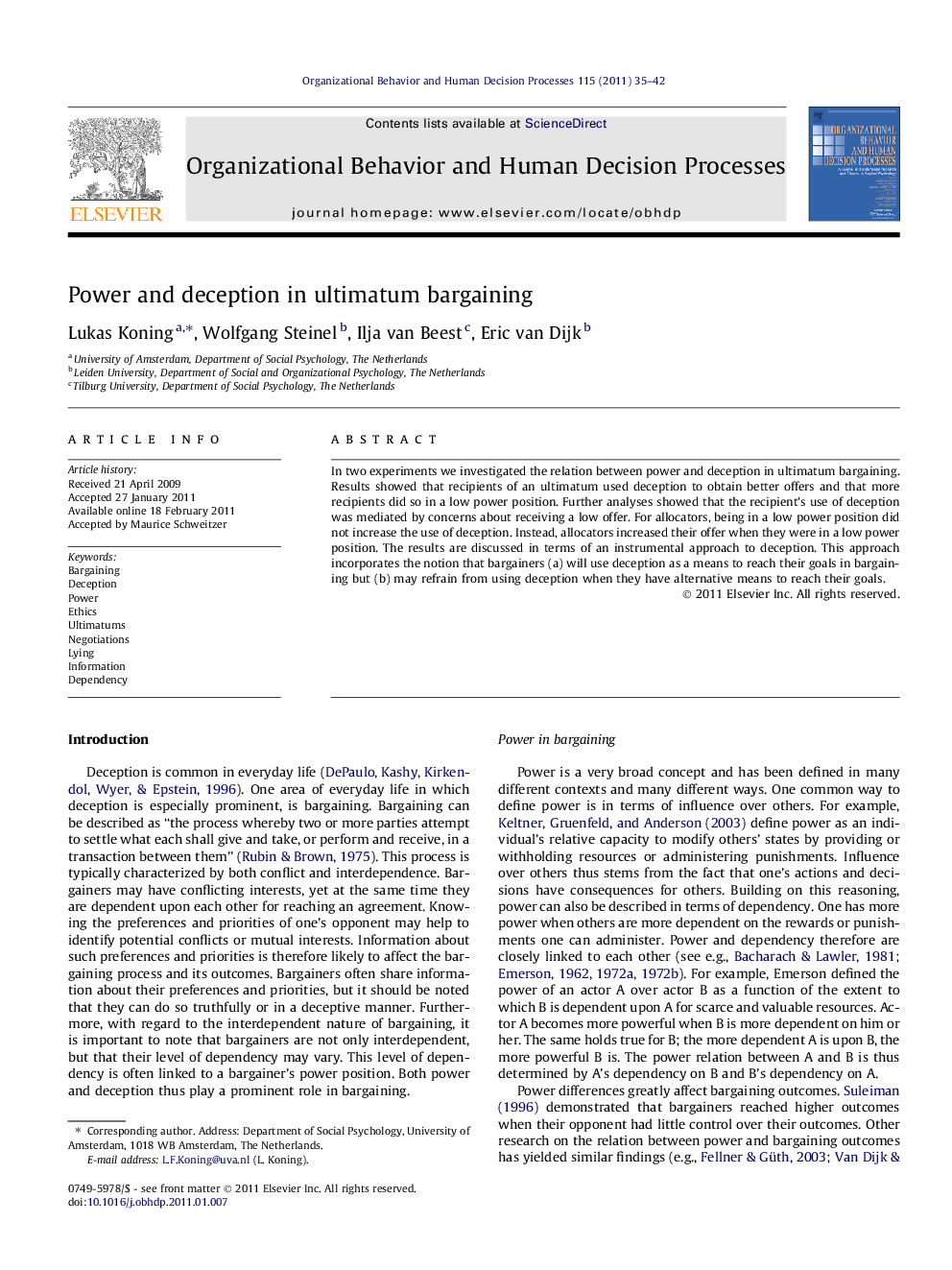| کد مقاله | کد نشریه | سال انتشار | مقاله انگلیسی | نسخه تمام متن |
|---|---|---|---|---|
| 888815 | 913573 | 2011 | 8 صفحه PDF | دانلود رایگان |

In two experiments we investigated the relation between power and deception in ultimatum bargaining. Results showed that recipients of an ultimatum used deception to obtain better offers and that more recipients did so in a low power position. Further analyses showed that the recipient’s use of deception was mediated by concerns about receiving a low offer. For allocators, being in a low power position did not increase the use of deception. Instead, allocators increased their offer when they were in a low power position. The results are discussed in terms of an instrumental approach to deception. This approach incorporates the notion that bargainers (a) will use deception as a means to reach their goals in bargaining but (b) may refrain from using deception when they have alternative means to reach their goals.
Journal: Organizational Behavior and Human Decision Processes - Volume 115, Issue 1, May 2011, Pages 35–42